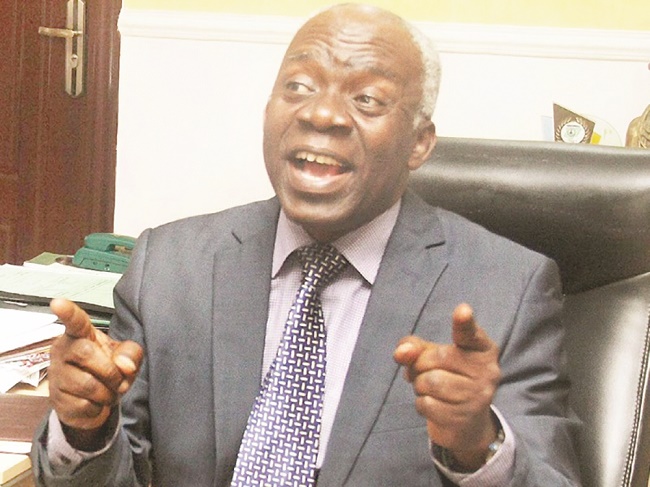LEADING rights lawyer and Senior Advocate of Nigeria (SAN), Mr Femi Falana, is set to release a list of subsisting judgments of regional and domestic courts allegedly ignored by the administration of President Muhammadu Buhari. The figure given by the human rights advocate is over 132.
He told Sunday Tribune that collation is underway and the list would be made public. This fact-based step is the human rights community’s response to the decision of the Attorney General of the Federation and Minister of Justice, Abubakar Malami, SAN to immediately comply with the controversial judgment of the Federal High Court, Umahia, nullifying Section 84(12) of the Electoral Act, 2022.
Though the Federal Government was the defendant in the suit instituted by a lawyer, Nduka Edede of Action Alliance (AA), Malami, hours after the judgment was handed down on Friday, promised immediate compliance.
The provision, which bars political appointees from contesting party primaries and voting in same, without resigning, would have possibly affected the Chief Law Officer of the country, who days before the judgment, had boasted he would not resign from his current job. He is believed to be eyeing the governorship seat of his home state of Kebbi.
Justice Evelyn Anyadike ruled the section unconstitutional, null and void and directed the AGF to delete it from the Act. Malami promised the gazetted copy of the election law would be without the provision, which conveyed the acceptance of the judgment by the defendant.
ALSO READ FROM NIGERIAN TRIBUNE
Falana, like many in the human rights community supportive of the provision, was unimpressed with the alacrity being displayed by the central government in complying with the judgment.
He pointedly accused the administration of selective compliance to court order, noting that over 100 subsisting judgments of domestic courts await compliance by the central government.
Giving a breakdown, he disclosed that 32 judgments of the Economic Community of West African States (ECOWAS) court which the Attorney General is statutorily duty-bound to implement, are pending. From the domestic courts, he said more than 100 judgments are awaiting compliance by the central government and its agents.
He disclosed that from the stable of the domestic watchdog, Socio-Economic Rights and Accountability Project (SERAP) alone, six judgments have not been implemented. He noted that fundamental cases are psychological in nature and the implication of not implementing such victories is beyond legal and constitutional matter.
He listed the Federal High Court judgment mandating education for all children of school age and similar pronouncement by the ECOWAS court that all children must be educated, as part of those to be obeyed.






